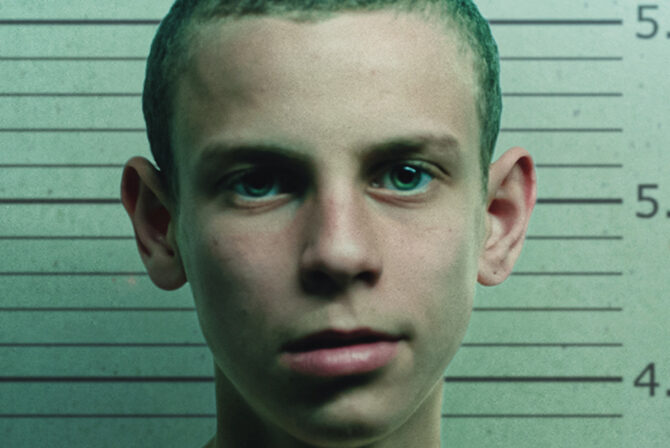The past few days have been unsettling. My parents live in St. Louis, and I felt very connected to the events in Ferguson this summer. Now, with the recent turmoil in Baltimore, where we lived until a little over a month ago, I’ve been having a strong sense of deja vu. Many of the sentiments I’ve seen online these past few days could’ve been taken verbatim from posts eight months ago. The same words. The same judgments. The same frustrations.
Shortly after we moved to Baltimore, I was taking a walk in our neighborhood, the Park Heights area, with the two children I had at the time. As I pushed my two young boys in the double stroller, a tall black youth walked toward us. He looked like what some people might call a “thug,” with tattoos, baggy pants, a tank top, and baseball cap. The uncharitable thought, “I hope he doesn’t mug me,” crossed my mind.
READ: In Light of Ferguson, How Do We Talk to Our Kids About Race?
When we were very close to one another, my boys exuberantly waved and greeted him with a loud, “Hi!” The young black man gave them a glorious smile and waved back, greeting them with an equally friendly, if quieter, “Hi,” of his own.
I was moved by the innocence and lack of prejudice my children displayed. At that moment, I had an intense desire to make sure that they maintained that openness, that ability to see past the cultural differences of our neighbors to see a person worth saying “hi” to. I haven’t spoken with my children about what happened in Ferguson, or what’s happening in Baltimore. They’re very young and oblivious to it. But if I were to speak to them, this is what I would tell them:
READ: Talking to My Son About Tamir Rice, Racism & Other Things We Still Don’t Get
Everyone is created in the image of God. We all have a Divine spark within us, and even when someone acts in a way that we don’t understand, or is inappropriate, they still have that spark of Godliness, and that is always worthy of respect.
We all have the power of free choice, but everyone’s selection of choices are different. Rabbi Eliyahu Dessler teaches us that our environment deeply affects what constitutes our free choice. A person who grows up in a suburban home will have a different set of choices of what is considered normal or acceptable than someone who grows up in the inner city.
In the “Ethics of our Fathers,” Hillel teaches us that we cannot judge someone until we’ve been in their place. This is hard. It’s easy to think things like, “Why are people looting and burning and being destructive? What is the point?” I have to remind myself that I really have no idea at all what it’s like to grow up in a place where the odds are so stacked against anything I would recognize as success, or even survival. Or what it’s like to be viewed as a potential criminal based only on appearance. I will never be in that place, my children will never be in that place, so we can never really judge.
We Jews are an inherently compassionate people, and as a minority which has been oppressed more than a few times in the last millennia, we of all people should be able to be empathetic to the downtrodden. The actions of some should not form our opinion of an entire people. Just like whenever an Orthodox Jew does something which is upsetting, or illegal, and I want to cry out, “That does not define us! We are not all like that!”–so, too, the Black population of Baltimore (or any city, really) should not be defined by the impulsive and inappropriate actions of some. Ditto for police officers.
READ: How to Navigate a Difficult World With a New Baby
Look for the good; have an ayin tovah (a good eye). There are people who are cleaning up, trying to help, people who are protecting and thanking the police, who are striving to change the bleak reality of city life. These people don’t always (or don’t often) make the news. Seek them out and support them however you can.
I have not completely internalized all of these concepts myself. Sometimes I find it very hard to have empathy and to not fall into a pattern of judgment, and when that happens, I feel embarrassed and frustrated. I am human, and I am very imperfect. But it is within my free choice to choose how I react to the events in Baltimore. Do I stay with the comfort of my preconceived notions, or do I stretch myself to try and see things from a different perspective? It may be difficult, but truly meaningful work is rarely easy.







